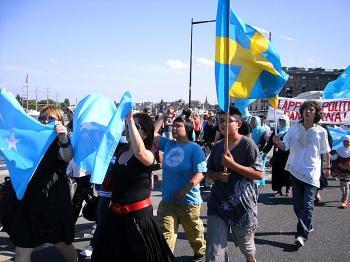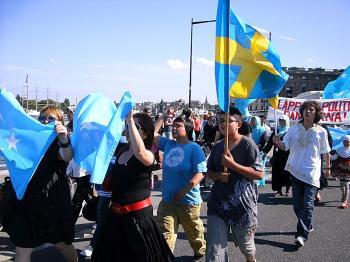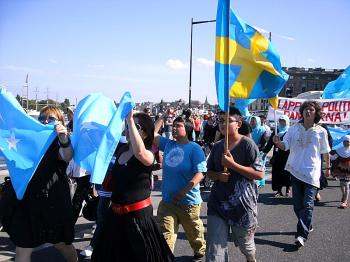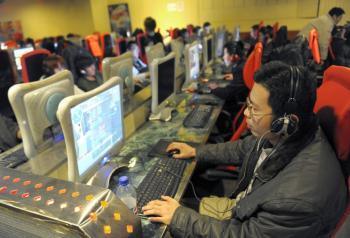Uyghurs Worldwide Protest on Anniversary of 2009 Violence
On the anniversary 2009 violence in Xinjiang, the World Uyghur Congress launched a worldwide protest.

Ms. Dilala Reheman, a witness of the July 5, 2009 violence, participates in a protest in Sweden on July 5, 2010. Courtesy of Dilshat Rishit
|Updated:



